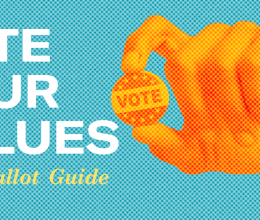
The United States Supreme Court today ruled states cannot pay lower welfare benefits to new residents than to longtime residents.The 7-2 decision said California's limit on benefits for new residents violates the constitutional right to travel.
Citizens of the United States, whether rich or poor, have the right to choose to be citizens of the state wherein they reside,'' Justice John Paul Stevens wrote for the court. ``The states, however, do not have any right to select their citizens.'' Stevens continued, ``The state's legitimate interest in saving money provides no justification for its decision to discriminate among equally eligible citizens.''
ACLU Legal Director Mark D. Rosenbaum, who argued the case before the Court, said, . This morning's decision by the United States Supreme Court invalidating California's durational residency requirement for welfare recipients reaffirms the principle that states may not fence out poor migrants.�_ In our constitutional system, citizens select states; states do not select citizens. The decision will be especially welcomed by mothers and their children fleeing domestic violence who may now settle in California secure that they will not be denied necessary assistance until they can secure employment.
California's policy would have given people who lived in the state for less than a year only the amount of welfare they would have received in their previous home state. Fourteen other states have similar laws.
A federal welfare overhaul enacted by Congress in 1996 specifically allowed states to temporarily provide lower benefits for new residents. But the justices said today Congress cannot authorize states to enact policies that violate the constitution.
The Court's ruling effectively voids provisions of the federal welfare reform legislation passed by Congress which authorized residency requirements like California's, said Rosenbaum. None of those measures survives today's decision.





